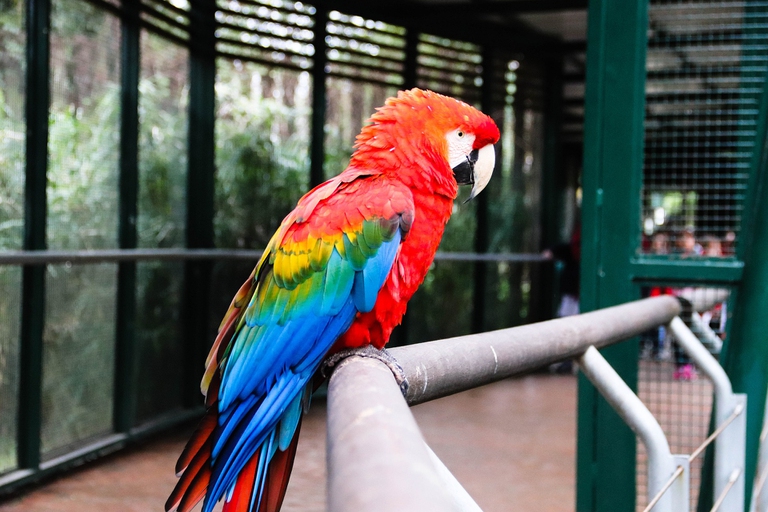https://www.lifegate.it/messico-zoo-privato-illegale
- |
- An illegal zoo with 47 animals discovered, 25 of which are wild.
- The gang was dedicated to the extraction and sale of petrol, hydrocarbons and water.8 arrested.
- The demand for exotic animals is growing, on Facebook you can buy without problems.
A white lion lying in the sun, a Bengal tiger sleeping in the shade of its cage, a fox prowling around the property, some birds of prey flying in its aviary, might seem like the description of a normal trip to a wildlife park.But that's not the case.That's what the authorities of the state of Mexico they found in a ranch in Huixquilucan, west of the capital Mexico City.
The illegal zoo with 25 wild animals
The operation, carried out due to some reports of suspicious activity inside the ranch, led to the discovery of 47 live animals, 7 stuffed animals and a container with 14 thousand liters of diesel. Among the animals present on the ranch, 25 of which are wild, from the band of guachicolero – people involved in the theft and illicit sale of fuel and alcoholic beverages – among others were found: a white lion (Panthera leo, with a form of leucism that makes him pale white), a Bengal tiger (Panthera tigris tigris), two pumas (Puma concolor), a South American gray fox (Lycalopex griseus) and a coyote (Canis latrans).Meanwhile, the police made an arrest eight people and the property has been secured until the animals' fate can be determined.
Extraction illegal fossils to maintain the zoo
From preliminary investigations it emerged that to finance this private "zoo", criminals engaged in the sale of stolen gasoline.And as demonstrated by the discovery, all the necessary material was present inside the property:such as an underground plant to supply the stations for the clandestine intake of hydrocarbons together with pumps to steal fuel from the pipelines and another pump for the illegal extraction of water.

Mexican law allows the possession of some species
In Mexico the keeping of exotic species depends from species to species.For example, second the Ministry for the Environment and Natural Resources, tigers cannot be considered pets, because they are predators and regulated by the General Wildlife Law.However, Mexican law allows ownership of an exotic animal as long as it is not an endangered species, such as the scarlet macaw (Scarlet macaw) or the howler monkey (type Alouatta).To own an exotic animal, the owners must have all the necessary documents and the animal must live in a dignified environment that respects its nature.

Facebook, the wild animal stall
As reported by the newspaper El País, the exotic animal trade – especially the illegal ones – is present in the most remote corners in some flea markets, but incredibly also on Facebook where the market for exotic species is increasingly frequent.In fact, in just a few clicks it is easy to find pages and groups such as those called “Wild animals for sale” or “exotic animals in Mexico City”.These groups offer everything from jaguars to hawks to turtles and chameleons, and within a matter of days, the buyer can have a rare owl delivered to his door, all without signing a single piece of paper.The responsibility, in these cases, for the sale of these types of exotic animals goes beyond the seller.Much of the blame falls on those who purchase them, especially if they are endangered species.Luckily under Mexican law, buyers are guilty and complicit in the crime of "international trafficking of animal species".Furthermore, if the animal does not receive the necessary care, the owners risk fines of up to 7.2 million pesos (320 thousand euros).
The nerve center of illegal trafficking
What will happen to the animals found on the ranch is yet to be determined, everything will depend on their origin.Some, those native to Mexico, yes will try to reintroduce them into their natural habitat, while the others will be temporarily transferred to specialized facilities that will take care of them.Mexico unfortunately remains one of the nerve centers of illegal animal trafficking, also favored by its rich biodiversity, with continuous trafficking with countries where demand is very high such as the United States and China, and with those from which the animals are taken such as Guatemala and other South American countries.
